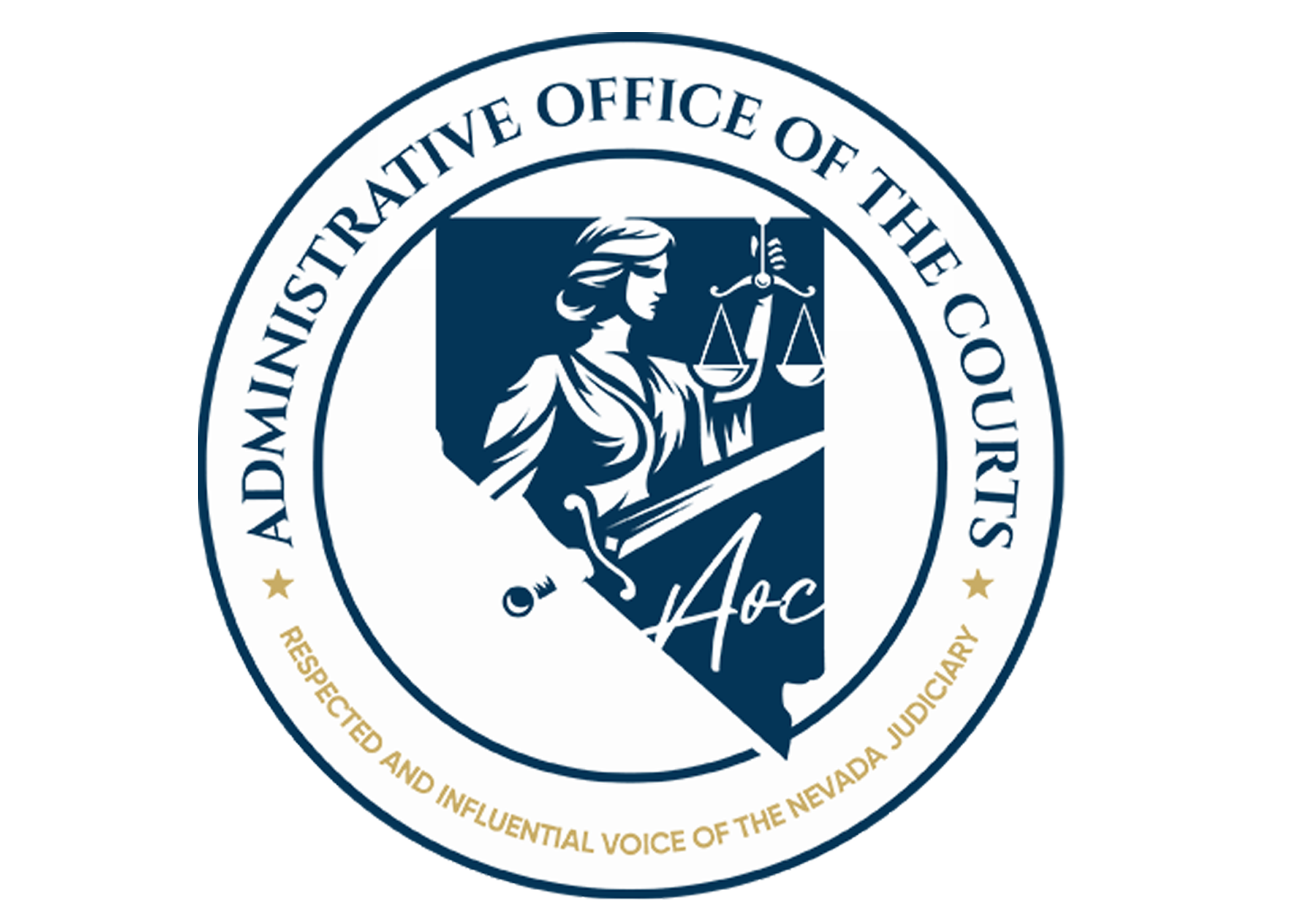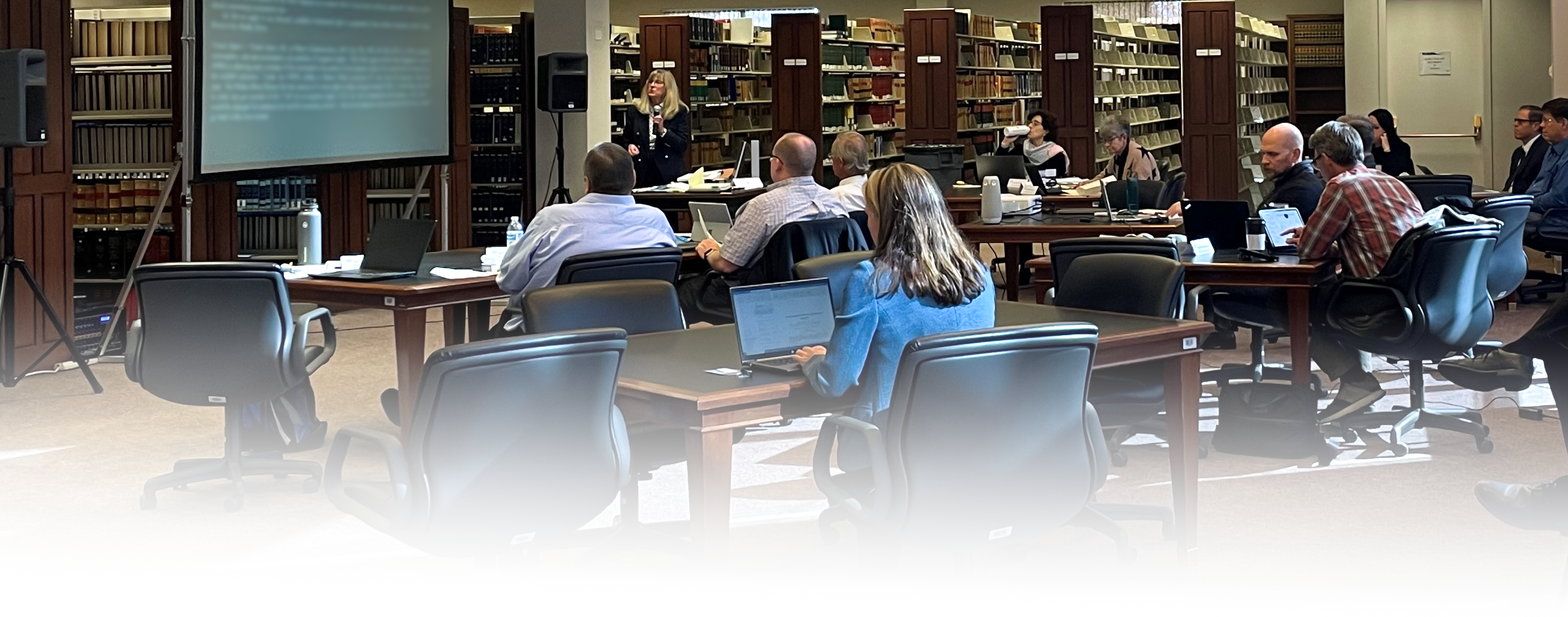Court Education and Development
Court Education and Development
In 2024, the Nevada AOC had an unique opportunity to transition from a siloed “education department” approach to an agile education methodology. This shift has improved collaboration, responsiveness, and overall effectiveness of training and education efforts. Nevada AOC advances education as an integral part of each AOC department, fostering a progressive mindset, structure, and processes. This agile approach ensures continuous education is a collective responsibility, enriching the entire AOC as a vital administrative resource for the courts.
The task of maintaining judicial competence depends on the willingness of the judiciary itself to assure that its members are knowledgeable and skilled in the study of the law and its development and that judges are trained in the application of legal principles and the art of judging. The personnel employed within the judicial system must also maintain a high level of competence to assist judges in carrying out their responsibilities and to provide accurate and timely services to the public. Proper administration of justice can be accomplished through education. It increases efficiency, innovation, and effectiveness to the benefit of the people of Nevada. Judicial education is a primary means of advancing judicial competency and building public trust and confidence in the judiciary.
Continuing education requirements are mandated by statute and Supreme Court order for all Nevada judges. View the initial and annual requirements broken down by judicial officer type. Additionally, there are continuing legal education (CLE) requirements for attorney judges to maintain their Nevada license. These requirements are mandated by the State Bar of Nevada.
The AOC has funding available for mandatory and elective judicial education. See Judicial Education Policies, for eligibility of, request for, and reimbursement of educational program-related expenses. All judicial education funding requests must be accompanied with the Preauthorization for Travel - Judges request form.
FUNDING FOR MANDATORY INITIAL JUDICIAL EDUCATION:
Newly elected and appointed judicial officers have mandatory education courses to complete, available on the Judicial Education page will have the link when posted* Course attendees must register first with the organization offering the course, and then submit the completed Preauthorization for Travel - Judges request form before making travel arrangements. Some NJC courses allow for attendees to have the AOC invoiced for course costs, so speak with the NJC registrar (800-255-8343) to request this option.
FUNDING FOR ANNUAL JUDICIAL SEMINARS
Active and Senior Justices/Judges who register through ClearVantage Online for AOC-sponsored seminars do not need to complete a Preauthorization for Travel form. Attendees will travel by the most economical means possible and within the Court Travel Policy to ensure full reimbursement and will submit a Travel Claim Form along with any required receipts. The AOC Travel website has the most current policies and information, and all attendees are highly encouraged to review the policy before making travel plans.
FUNDING FOR ELECTIVE JUDICIAL EDUCATION
The AOC provides limited funding that judicial officers may request to pursue specialized judicial topics. Requests are considered on a first-come, first-served basis, and expenses will be outlined in the completed Preauthorization for Travel - Judges request form.
Note: Only courses within the US will be considered for reimbursement.
Seminars and conferences cover a broad range of subjects, including specific substantive and procedural areas of the law and management, communication, and professionalism. Faculty are subject matter experts and include distinguished jurists, legal scholars and others having expert knowledge in matters of importance to the judicial function.
The seminars and conferences also afford the opportunity for judges, court personnel and other stakeholders to network across their discipline and the judicial system as a whole, with the resulting public benefit of competent and fair administration of justice.
The Distance Education Program fosters the Judicial Education’s mission by use of technology to support innovative and accessible learning approaches that extend educational opportunities. This is accomplished through webinars, self-paced on-line training, videoconferencing, videos, courses, and written correspondence. The distance learning environment facilitates the sharing of expertise, practice, and resources in continuing judicial education and maximizes accessibility to judicial education training and resources by removing the barriers of location and time, and in most cases, cost. The opportunity to learn new and review current information valuable to maintaining the integrity of Nevada’s state judicial system is limitless through distance education.
As with in-person seminars and conferences, distance learning opportunities cover a broad range of subjects, including specific substantive and procedural areas of the law and management, communication, and professionalism. Faculty are also subject matter experts and include distinguished jurists, legal scholars and others having expert knowledge in matters of importance to the judicial function.
Although not a traditional networking format, faculty and peer interaction opportunities are accomplished through video, telephone and on-line by way of chat, blogs and discussion boards.
Court Education and Development courteducation@nvcourts.nv.gov


